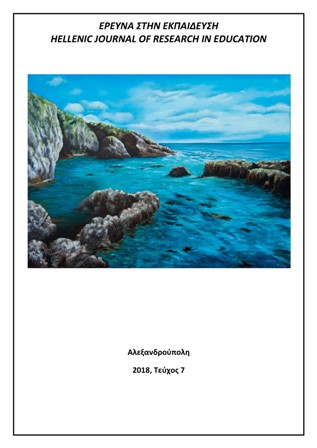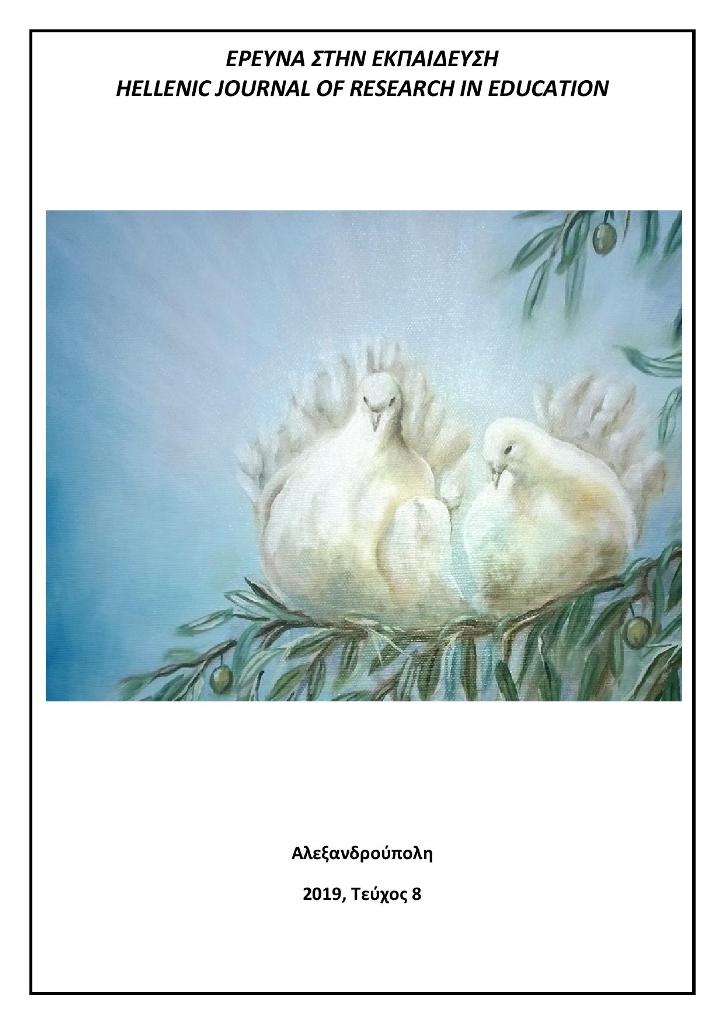Το ζήτημα της εκπαίδευσης των μαθητών με αυτισμό στην Ελλάδα υπό το πρίσμα των γνώσεων/αντιλήψεων και στάσεων των εκπαιδευτικών: μια ανασκόπηση της βιβλιογραφίας

Περίληψη
Οι ερευνητές πραγματοποίησαν μια ανασκόπηση της βιβλιογραφίας για τις γνώσεις/αντιλήψεις των εκπαιδευτικών για τον αυτισμό και τις στάσεις τους για τη συμπερίληψη των μαθητών/ριών με αυτισμό στην Ελλάδα. Για να βρουν τις σχετικές με το θέμα έρευνες διεξήγαγαν αναζήτηση στο Google Scholar και στις βάσεις δεδομένων ERIC και PubMed με τις λέξεις-κλειδιά «Εκπαιδευτικοί», «μαθητές με Αυτισμό», «Αυτισμός», «Αντιλήψεις», «Γνώσεις», «Απόψεις», «Στάσεις», «Γενικοί παιδαγωγοί», «Ειδικοί παιδαγωγοί», «Δάσκαλοι», και «Νηπιαγωγοί». Από την αναζήτηση βρέθηκαν 9 άρθρα σχετικά με το θέμα τους. Τα αποτελέσματα έδειξαν ότι οι εκπαιδευτικοί γνωρίζουν σε ένα καλό επίπεδο τον αυτισμό και έχουν θετικές στάσεις στη συμπερίληψη αυτών των μαθητών. Επίσης, η ανασκόπηση έδειξε ότι η διδακτική εμπειρία παίζει σημαντικό ρόλο στις γνώσεις και στάσεις των εκπαιδευτικών. Τέλος, οι εκπαιδευτικοί ειδικής αγωγής και αυτοί που έχουν κάποια εξειδίκευση και εμπειρία στον αυτισμό γνωρίζουν καλύτερα τον αυτισμό σε σχέση με τους εκπαιδευτικούς γενικής αγωγής και εκείνους που δεν έχουν κάποια εξειδίκευση και εμπειρία στον αυτισμό. Συμπερασματικά, η ύπαρξη περισσότερων επιμορφωτικών προγραμμάτων πάνω στον αυτισμό θα βοηθήσει τους εκπαιδευτικούς να εκπαιδεύσουν αποτελεσματικά τους μαθητές με αυτισμό και να αναπτύξουν θετικές στάσεις για τη συμπερίληψή τους.
Λεπτομέρειες άρθρου
- Πώς να δημιουργήσετε Αναφορές
-
Λάππα (Lappa) Χ. (Christina) Σ., & Μαντζίκος (Mantzikos) Κ. (Constantinos) Ν. (2018). Το ζήτημα της εκπαίδευσης των μαθητών με αυτισμό στην Ελλάδα υπό το πρίσμα των γνώσεων/αντιλήψεων και στάσεων των εκπαιδευτικών: μια ανασκόπηση της βιβλιογραφίας. Έρευνα στην Εκπαίδευση, 7(1), 44–63. https://doi.org/10.12681/hjre.16161
- Τεύχος
- Τόμ. 7 Αρ. 1 (2018)
- Ενότητα
- Άρθρα

Αυτή η εργασία είναι αδειοδοτημένη υπό το CC Αναφορά Δημιουργού – Μη Εμπορική Χρήση – Παρόμοια Διανομή 4.0.
Τα πνευματικά δικαιώματα των άρθρων του περιοδικού ανήκουν στους συγγραφείς. Τα άρθρα διατίθενται με άδειες Creative Commons CC-BC-SA 4.0



